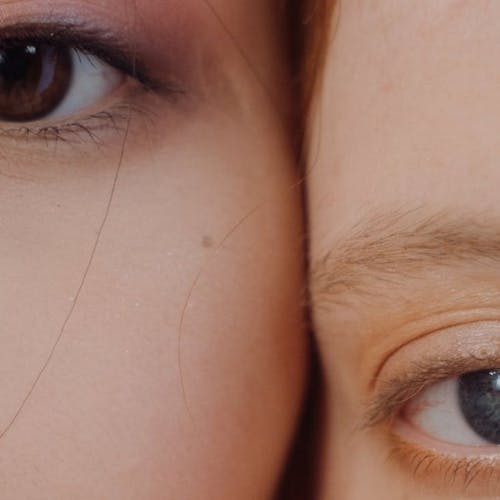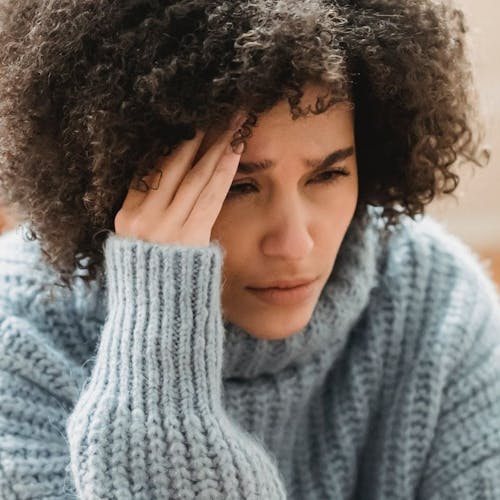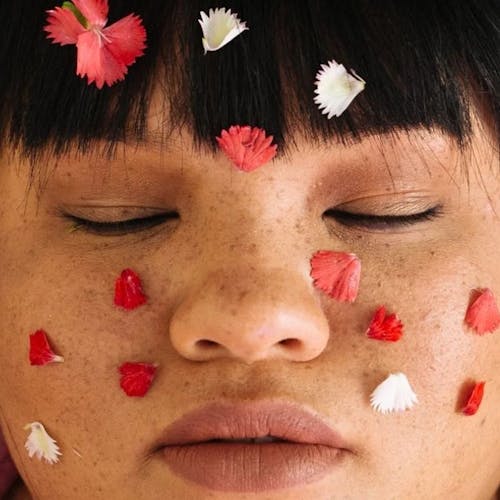This website uses cookies to enhance the user experience. By using Yoppie you are agreeing to our use of cookies.
The Role Of Oestrogen In Your Menstrual Cycle
Written by Yoppie
15 Apr 2022
What is oestrogen?
What does oestrogen do?
What is oestrogen's role in my cycle?
What if I have too much oestrogen?
What if I have too little oestrogen?
How do I know if I have an oestrogen hormone issue?
What happens to my oestrogen during pregnancy?
What happens to my oestrogen during menopause?
What is hormone replacement therapy?
Think you know your hormones?? We’re here to shed more light on oestrogen, a star hormone in your menstrual cycle. What is it? What role does it play? And what if your oestrogen levels are out of whack?? We’re covering it all…
What is oestrogen?
Oestrogen is a type of hormone produced by the ovaries, adrenal glands and fat tissues, and though people with periods produce more of it, people without periods also have it. There are different types of oestrogen; estrone, estradiol and estriol.
Estrone is the one present in the body after menopause, estradiol is the most common and mainly present during the reproductive years, and estriol rises during pregnancy and peaks before giving birth, helping the uterus prep for delivery.
What does oestrogen do?
Oestrogen is known for its role in the menstrual cycle, but it also affects the urinary tract, heart and blood vessels, bones, breasts, hair, skin, pelvic muscles, mucous membranes, and even the brain. It’s responsible for helping several organs function, including stimulating growth of the egg follicle in the ovaries, maintaining vaginal lubrication, maintaining the mucous membrane that lines the uterus, and the formation of breast tissue.
What is oestrogen's role in my cycle?
It’s no secret oestrogen is a VIP when it comes to your period, but what does it actually do during your cycle? Three main things; sexual development, the cycle itself, and the management of your mood.
During your formative years, oestrogen is what helps to grow the reproductive anatomy, breasts, and armpit and pubic hair. Next, it performs its starring role in your cycle, by building up the lining of your uterus each month to prepare your body for a pregnancy (even if it doesn’t actually occur). And of course, during your cycle you may experience mood swings, and oestrogen is partly to blame for those.
Oestrogen is partly responsible for the production of the chemical serotonin (the mood-balancing chemical) so when oestrogen levels are low, serotonin may be too. It is thought this connection is what could cause postpartum and menopausal depression.
What if I have too much oestrogen?
Sure, it’s a necessary hormone, but you don’t want too much oestrogen compared with your testosterone and progesterone. This is known as oestrogen dominance and can cause some issues. High oestrogen occurs either naturally over time, or due to taking certain medications such as oestrogen replacement therapy sometimes prescribed during menopause.
Symptoms of excessive oestrogen levels in people with periods are noted as worse PMS, worse mood swings, headaches, bloating, breast tenderness, fibrocystic lumps in the breasts, decreased libido, irregular periods, anxiety or panic attacks, weight gain, hair loss, cold hands or feet, sleep problems, fatigue and memory issues.
What if I have too little oestrogen?
Also not ideal! Low levels of oestrogen can occur due to excessive exercise or eating disorders, a low-functioning pituitary gland, premature ovarian failure (due to genetics, toxins or autoimmune conditions), chronic kidney disease, Turner syndrome (a rare chromosomal disorder) or in over 40s, low oestrogen could mean you’re approaching perimenopause.
Symptoms can include painful sex (due to a lack of vaginal lubrication), an increase in UTIs (urinary tract infections), irregular periods, mood swings, hot flashes, breast tenderness, headaches/migraines, depression, trouble focusing, fatigue, fertility issues, and in some cases, weak bones that are more easily fractured since oestrogen is needed for strong bones!
How do I know if I have an oestrogen hormone issue?
There are many factors affecting oestrogen levels such as puberty, pregnancy, breastfeeding, perimenopause and menopause, weight, exercise routine, medications, previous medical history and more. If your GP suspects you have high oestrogen, they’ll usually recommend a blood test and depending on the results, possibly medication or diet changes. If they suspect low oestrogen, they may recommend oestrogen therapy or hormone replacement therapy (HRT) to get your levels back to normal.
What happens to my oestrogen during pregnancy?
Your hormones go a little haywire during and after pregnancy, but that’s very normal! Pregnant people will get a sudden spike in oestrogen which is responsible for the development of the foetus, formation of blood cells, delivery of nutrients to the foetus, and also that pregnancy ‘glow’ everyone harps on about! Oestrogen levels rise at the beginning of pregnancy which can cause nausea, and then levels peak during the third trimester.
Fun fact: a pregnant person produces more oestrogen while pregnant than throughout the entire rest of their life.
What happens to my oestrogen during menopause?
Oestrogen levels vary from person to person and fluctuate each month, but they will also decrease as you age. During perimenopause you may notice common menopausal symptoms like vaginal dryness, hot flashes, night sweats, palpitations, headaches, insomnia, fatigue, and bone density loss.
Menopause is a natural part of life, but you don’t need to just put up with the symptoms. Hormone replacement therapy (HRT) is available, so if you are suffering with the symptoms of menopause don’t be afraid to speak to your doctor about this option.
What is hormone replacement therapy?
HRT (hormone replacement therapy) is often prescribed during menopause, and it essentially provides additional oestrogen and other hormones to relieve some of the symptoms of menopause. It can help reduce hot flashes, night sweats and mood swings, as well as helping maintain good bone density.
Some people are not suitable for this type of therapy, for example if you have a history of certain cancers, blood clots, untreated high blood pressure, liver disease, or you’re currently pregnant. If you think it might be for you, speak to your doctor to find out more.
Got more questions about oestrogen? We’re here to help in any way we can! Reach out to us any time, either in our Full Stop FB group or on Instagram at @itsyoppie. Don't forget that our personalised menstrual care subscription can get organic tampons, supplements for bloating, and much more, delivered easily and regularly through your letterbox, to help you to go with your flow, whatever it is.
Section jump
Back to top
Subscribe To Our Newsletter
YOPPIE





© 2026 Yoppie is a registered trademark of Phlo Technologies Ltd.
Yoppie's supplements are not a substitute for a varied diet and healthy lifestyle and are not intended to diagnose, treat, or cure any disease. If you are pregnant, breastfeeding, have a medical condition or are under medical supervision, please consult with your doctor before taking any of our products.






